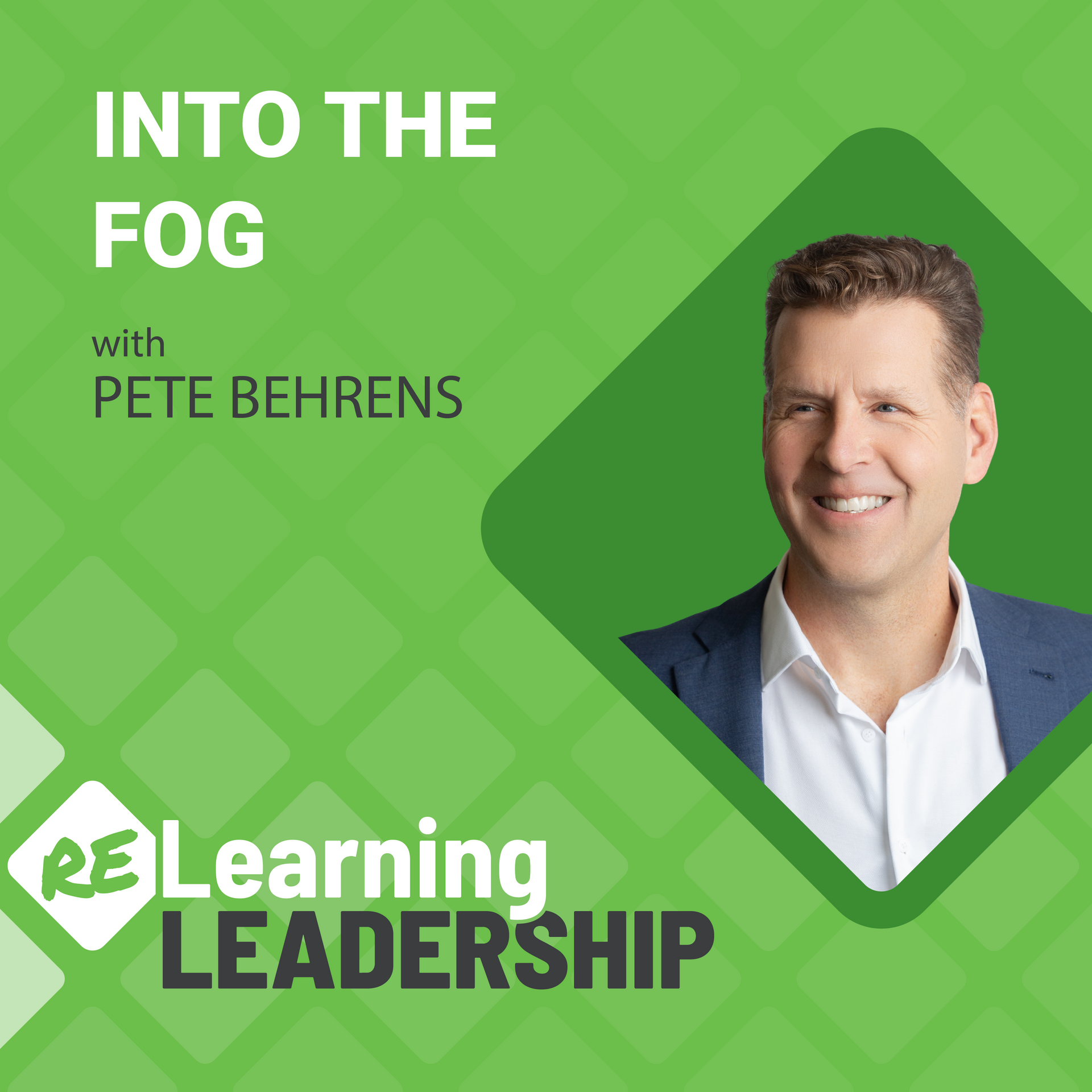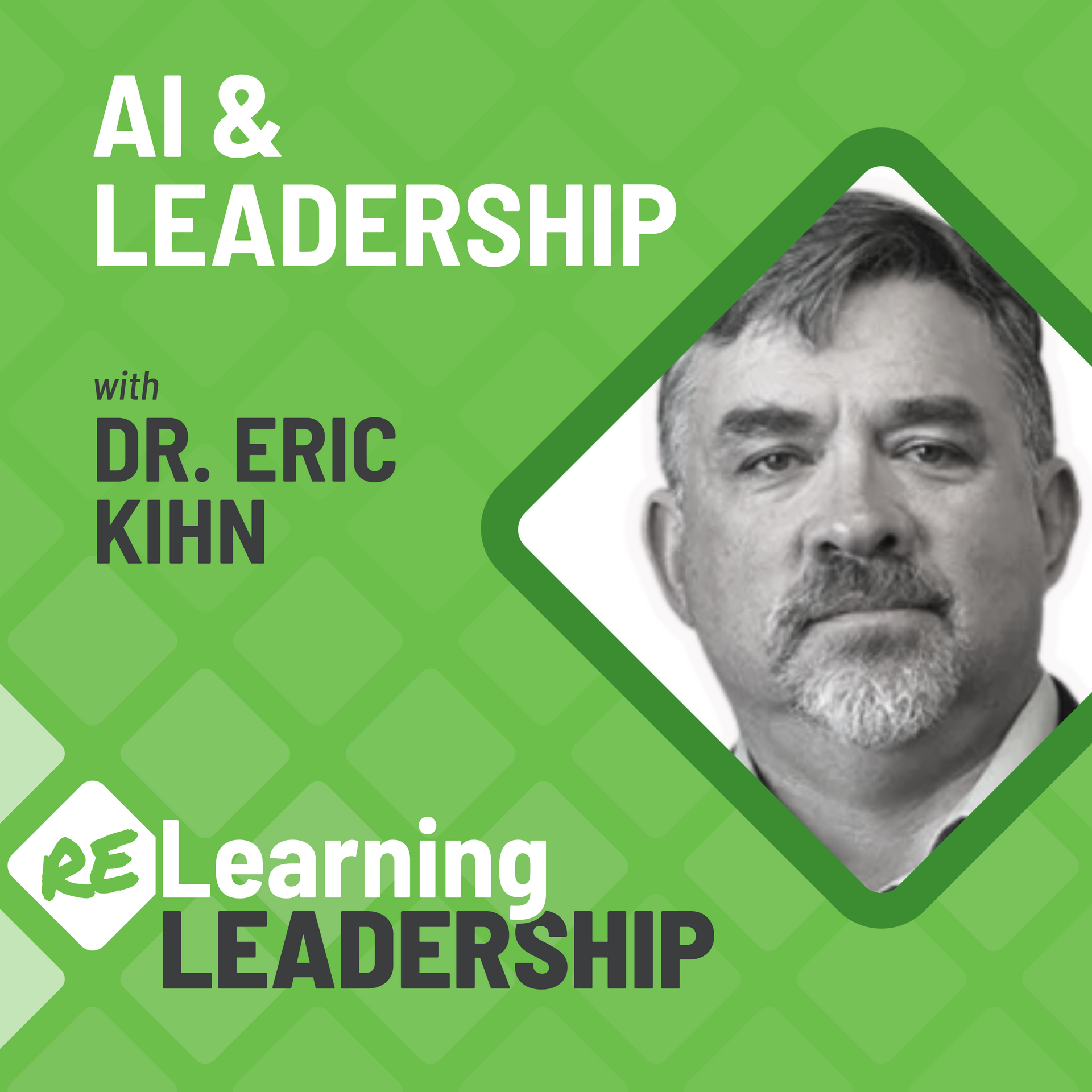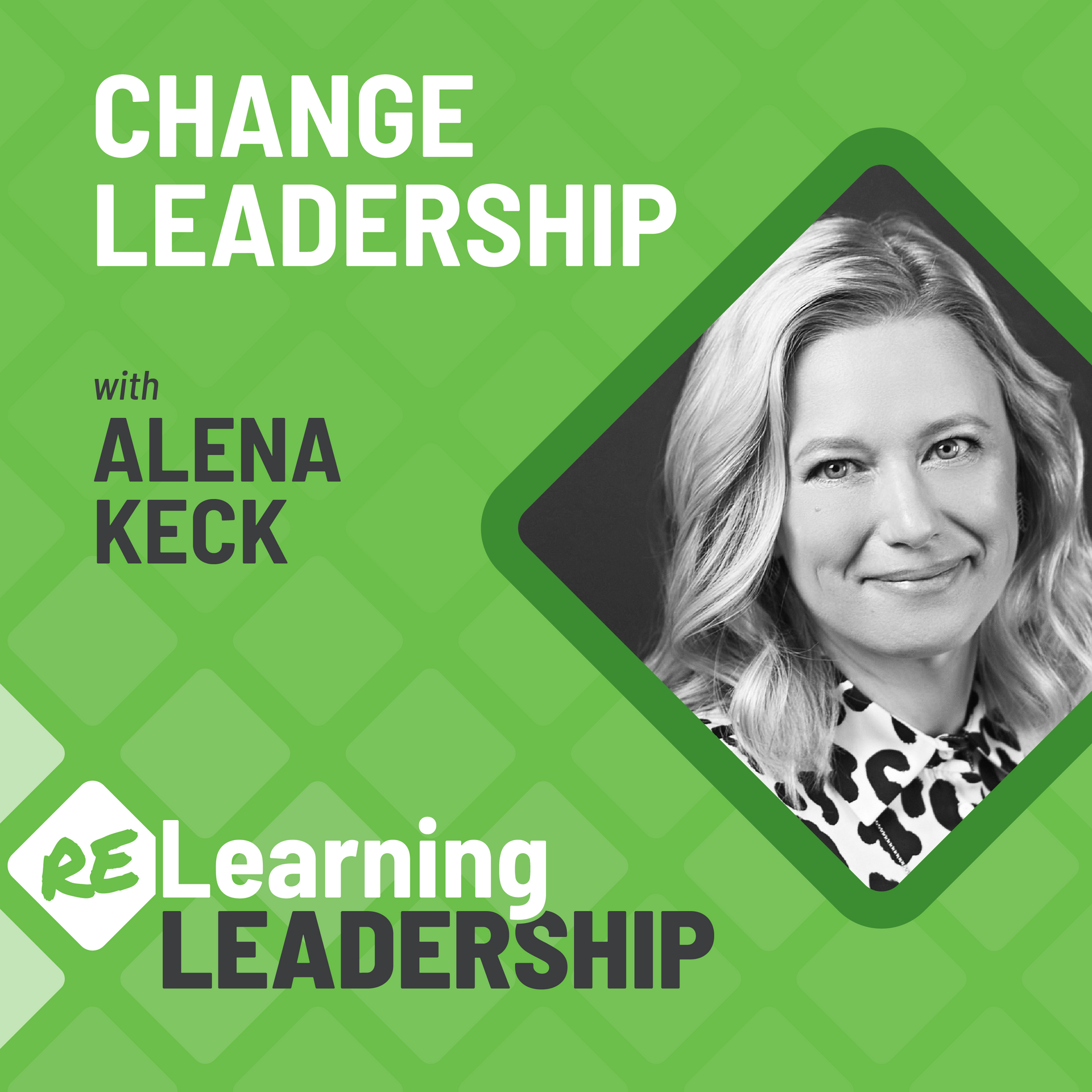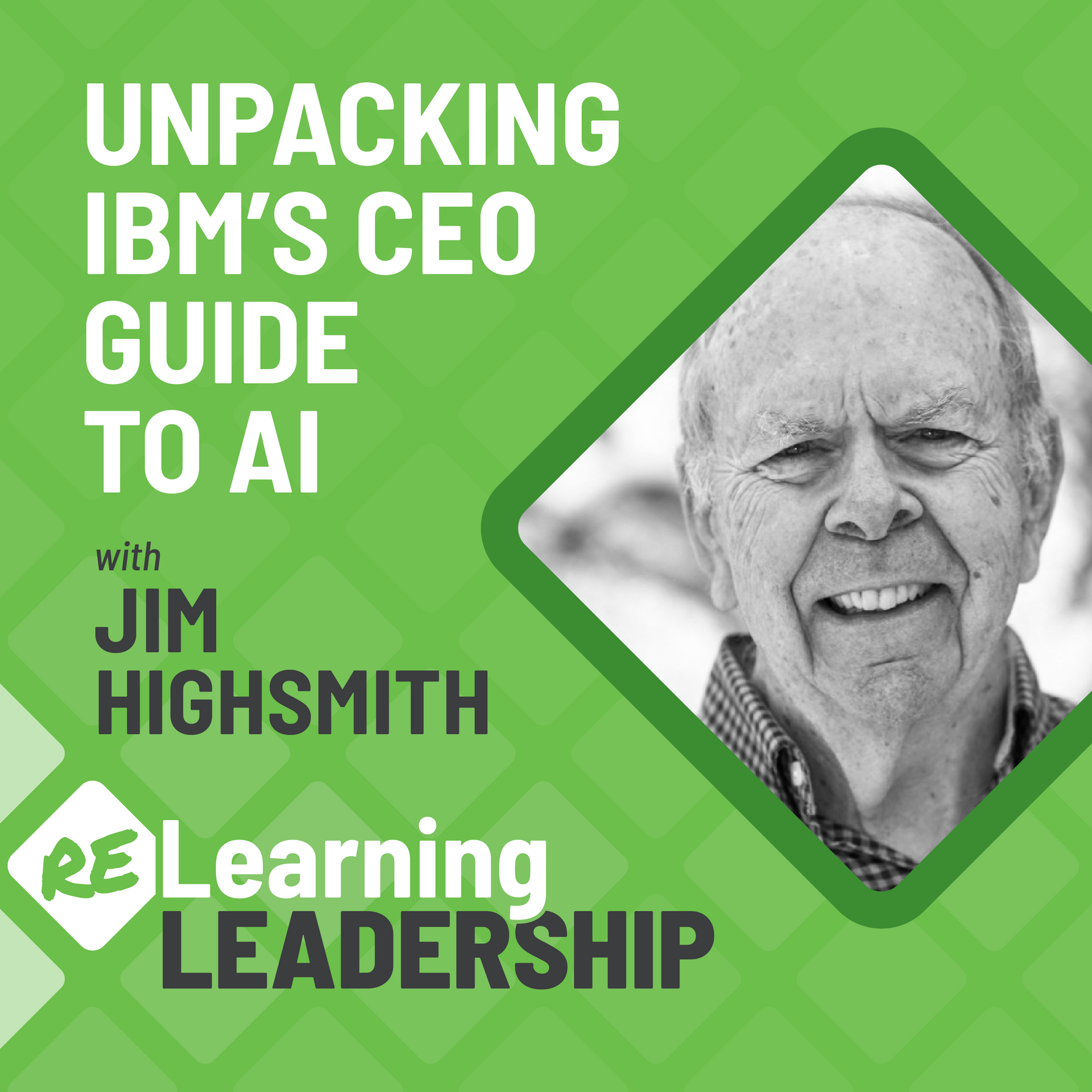2: Navigating a New Boss
How do you handle leadership changes?
Josh Forman, a Director of Engineering from a high-tech scale-up organization, shares his story of navigating the vast changes in his company and specifically dealing with a new COO.
Following Josh's interview, Pete talks with Rachel Weston Rowell, a leadership teams coach who specializes in startup and scale-up organizations, to discuss Josh's story and what all leaders can learn from it.
Rachel Weston Rowell, Executive Coach
Following Josh's interview, Pete talks with Rachel Weston Rowell, a leadership teams coach who specializes in startup and scale-up organizations, to discuss Josh's story and what all leaders can learn from it.
Rachel is also an
ALJ Guide.
Connect with Rachel
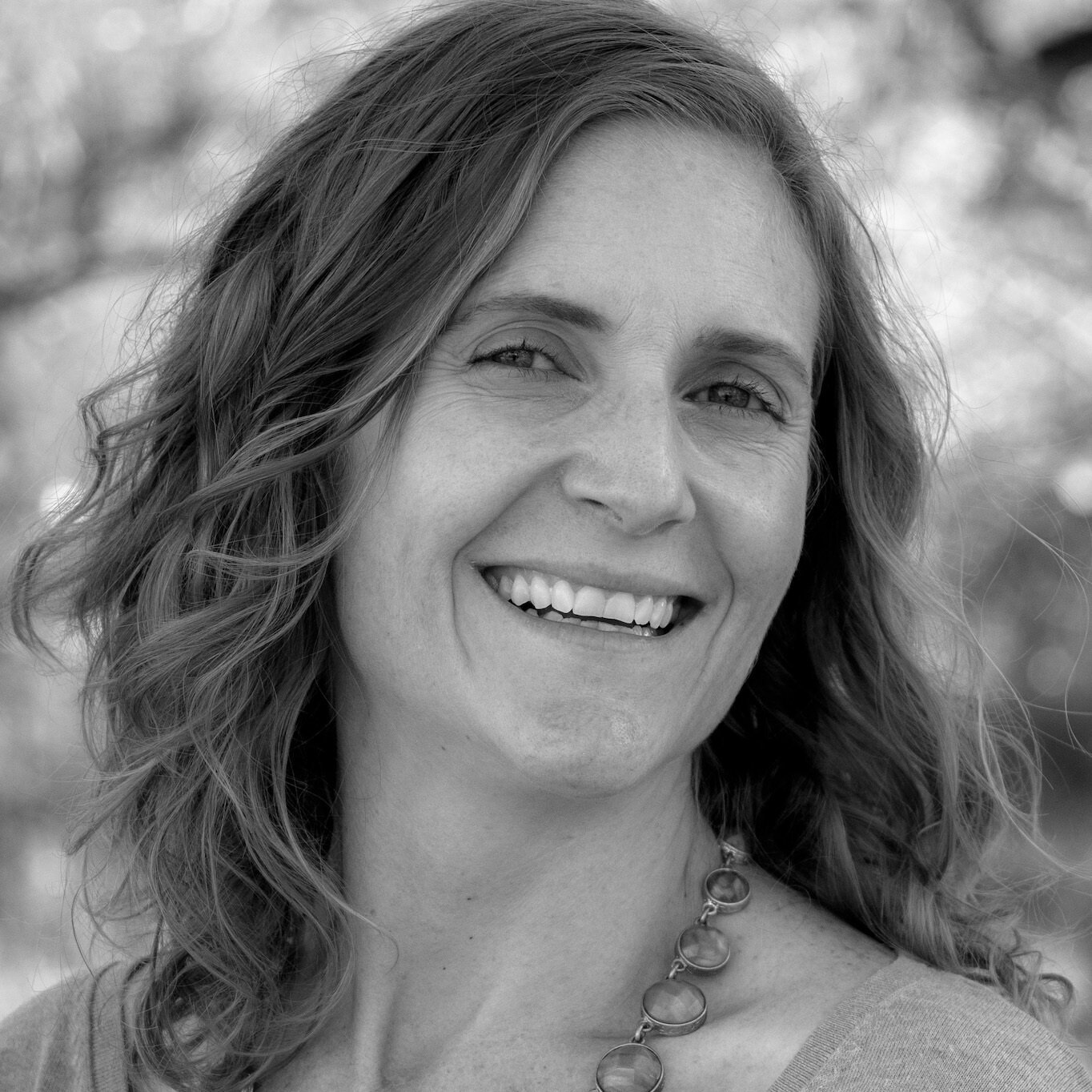
(Re)Learning from Josh's story…
What can we learn from Josh’s story? Besides the typical chaos of his fast-growing technical scale-up company, Josh found himself in a common leadership polarity — follow your leader OR chart your own path. However, Josh realized that both of these solutions were not serving him well, nor did it go over well with his new boss.
One of the techniques we teach in the Agile Leadership Journey how the leader’s power style impacts their interactions with others. Power style shows up along a similar polarity between over-accommodative and over-assertive.
In this story, Josh found himself on both sides of this polarity exhibiting EITHER an accommodative OR assertive power style. However, what he needed to find was BOTH/AND power style. And while this may appear simple, it is certainly not easy, as Josh realized. Although, with a bit of awareness and guidance, Josh was able to identify a technique that worked for him - asking more questions.
While questions may appear on their surface to be an accommodative stance, asking more challenging, probing, aligning questions will help leaders avoid the defensive reaction of pushing back and remain in a more curious mindset for the crucial start of the conversation and longer within. However, asking questions does not mean accepting all of the answers provided, that is something we can explore in another episode!
Episode Transcript
Pete Behrens:
How do you deal with a new boss you may not agree with, especially one who comes in as strong and assertive? Welcome to another episode of Relearning Leadership, where we explore a specific leadership challenge and break it down to help improve your leadership, your organization, and even your personal life. Today, I'm joined by Josh Forman, a director of engineering from a fast-growing scale-up organization in cryptocurrency. In a rapidly changing organization, Josh is under a lot of pressure and constant leadership change.
Josh Forman:
The whole structure around me changed very rapidly.
Pete Behrens:
When he's assigned a new, strong and competent boss, he struggles with how to be heard and following the direction of his new leader. This is the story of how Josh navigated both. I'm your host, Pete Behrens, founder of the Agile Leadership Journey and 30-year veteran in corporate leadership, both as a leader myself and in guiding other leaders. And as an engineer by profession, I now help leaders optimize their people systems to become more focused, responsive and resilient to change. I'm excited to share Josh's journey with you and stick around following our dialogue, I'm joined by Rachel Weston Rowell, an executive teams coach, specializing in scale-up leadership teams and organizations.
Rachel Weston Rowell:
Some folks love working in companies at this stage and for others, it would be a nightmare.
Pete Behrens:
Rachel and I dissect what we learned and relearn for you to improve your own leadership in dealing with a challenging boss. Let's dive in. Welcome to the show, Josh.
Josh Forman:
Thanks, Pete. It's great to be here.
Pete Behrens:
Josh, set the stage for us. What's going on in your organization driving this change?
Josh Forman:
The engineering team was having some organizational challenges, morale challenges, and the CEO decided to make some changes to try to address that. And coincidentally, at that same time, I entered the Agile Leadership Journey six months training program.
Pete Behrens:
That's interesting. Change coming down from above, it sounds pretty typical and something I think we can all relate to. But Josh, I can imagine people saying, "You're part of this leadership team." Were you taking any personal ownership in this?
Josh Forman:
Yes, I was. In fact, the CTO and me talked about it. We knew something needed to be different, but we just weren't making change happen. So, I certainly take some ownership of that of not making sure that that change was happening and therefore change was brought.
Pete Behrens:
And it sounds like you took some personal responsibility as well by joining a development program. So what was it like for you when your new boss was brought in?
Josh Forman:
There was some of both excitement and some of being cautious, I guess, right? Not knowing exactly how it was going to go or how was the relationship going to be. At the same time, the director that I was working with, who I had partnered with pretty strongly, he also decided to leave ShapeShift. So the whole structure around me changed very rapidly and it was a challenging time for me navigating my relationship with the new COO that I was now reporting to.
Pete Behrens:
Yeah. It sounds like some anxious tension between you and your COO. I want to dive into this just a bit deeper though. What were you feeling at the time?
Josh Forman:
There is always some excitement with change for me and I also have some hesitancy, let's just call it fear about the unknown, what is this going to mean? As the relationship developed, she had some very strong ideas about what she thought could happen and should happen. And I think that's one of the strengths that she brought to the role, right? She was a strong leader and I found that how I reacted to that was in one of two unhealthy ways. One of them is that I would placate her, even if I had questions, even if I didn't know exactly why, right? I'd just be like, "Well, okay, let's try that." Trying to be open-minded, right? And then on the other side, and she would make a request and I would think, "Gosh, I've been kind of a pushover here." And then I would just resist and say, "No, this is why that's not a good idea." Still not really understanding why.
Pete Behrens:
So it sounds like maybe you were stuck between two disappointing alternatives, either following orders or just pushing back. How did she respond to that?
Josh Forman:
I can certainly recall one conversation that we had and we were talking about this and she said to me, "I noticed that when I bring ideas to you, a defense mechanism comes up and you're just automatically shooting down the ideas that I bring." And she just ask, "I wonder, what's that about?" And specifically she asked, "Do you not trust the decisions that I make?"
Pete Behrens:
So she pulled out the trust card. Do you not trust the decisions? What did you do?
Josh Forman:
Well, I reflected on that in the moment and realized that she was right that I was doing that. And then we talked about how sometimes I do that in the beginning, I'll say, "No." And then I'll think about it, and then I may come back to her at some later point and it goes on from there, but it's never left with any kind of clean decision at the end. It's always has some murkiness to it.
Pete Behrens:
Yeah. I like how you had starting to take some personal responsibility here, maybe seeking new ways to change your situation. During this time, what did you find to be the most helpful in turning this kind of angst, no win situation into something more productive?
Josh Forman:
This experience greatly expanded my curiosity which I have found when in conflict. If I can turn conflict into curiosity, it really changes the game for me. How I did that in this particular case is I realized that I didn't have to say yes or no. I will be curious and ask questions to better understand why she was asking that question or making that suggestion in the first place. I just got more connected to her. So in those two scenarios that I was doing before, I either placated her, which is I didn't connect to me, and all I cared about was what she wanted. Then, there's the piece when I'm resisting what she's saying, now, I'm only connected to me. I'm not considering her. In asking questions, I'm representing my needs, what I need to know and I'm connecting to her at the same time, understanding her perspective. And I think connected to self and other is what really moved things forward and changed things for me.
Pete Behrens:
I'm wondering for our listeners here, they're thinking, "Ooh, I've been told to ask questions." But I'm kind of curious about that. There's a lot of type of questions. There's leading questions. There's rhetorical questions. We've got very curious open-ended questions. Have you found a particular trick?
Josh Forman:
Good question. There's something that you want to know about, so you want to ask a question that will dive into that particular area, but that does not lead to a specific answer, or the specific response that you want. You want to leave that open to the person that you're talking to.
Pete Behrens:
I think that's some great advice, Josh. You seem to have found a really nice sweet spot between these two open and closed questions, ones that allow you to maybe get your ideas forward yet, leave you open to maybe some new learning. So taking a step back for a minute, what have you relearned about your own leadership?
Josh Forman:
I have really come into the power of curiosity and of really wanting to connect with the people that I'm working with and that I'm leading. And I think that relearning how important connection is to me, which I've always known, but in the leadership context was a really powerful insight for me.
Pete Behrens:
I love your newly developing superpower of curiosity. And I think like most leaders were promoted because of what you do, what you're good at at work. In your case, it's engineering. And yet here you are needing to develop a new leadership power. What are you doing to develop this new skill?
Josh Forman:
What I believe is that just like you can practice a technical skill, you can practice having stronger connections. You can practice asking better questions. You can practice being more available. You apply yourself and practice it and seek learning about it. These changes don't happen overnight. This happened over a period of really from beginning to end a few months before the relationship really found a new sense of ground and being.
Pete Behrens:
That's why we call it a journey. Leadership is a muscle. I think we can develop with practice. Is there any other advice Josh, you might share with others dealing with a new boss?
Josh Forman:
The advice that I would give to other leaders who are struggling in your relationship with your boss is that change happens when you change. Pay attention to how you are using yourself. Change something about the way you're relating. It's going to create a change in the relationship. And don't wait too long to do something different and see how that changes the relationship. Pay some attention, notice what's going on for you, and then make an educated guess about changing your behavior and then seeing how that changes from them. So I think it's just important that it comes from this place of connection first. What could you do different? That's can be unique, but the paying attention to how you are using yourself, I feel is pretty universal.
Pete Behrens:
Well, and I think you're bringing up an excellent point which is, when often we run into conflict, our focal point is the conflict, it's the other. And what you're basically saying here is you're putting up the mirror. You're saying, "Okay, what's going on in me? What am I doing?" And in fact, I think as you look at the change in the relationship happened from you. Well, Josh, this has been a fascinating story and I appreciate your willingness and vulnerability to share.
Josh Forman:
Thanks a lot, Pete. Really happy to chat.
Pete Behrens:
I am now joined by Rachel Weston Rowel, who's an executive team coach, passionate about helping leaders truly work as a team so they can focus on success and health in their organizations. She specializes in scaling organizations and has coached and educated leadership teams for over 15 years. Welcome to the show.
Rachel Weston Rowell:
Thank you. I'm so excited to be here, Pete.
Pete Behrens:
I'm glad to have you here. I'm excited. I think you fit perfectly into the story from a number of dimensions and the one that maybe jumps out to me the most is your focus around these startups and scale-ups. I'd like to just talk for a minute before we get into Josh's story. What is that culture like? What is unique about this culture that Josh is in?
Rachel Weston Rowell:
This is such an interesting organizational time. And I think that some folks love working in companies at this stage and for others, it would be a nightmare, because it is a time of unending change. When you're a startup, what's really exciting about that period is there's really only one job to do and that's to survive. That focusing energy of the startups starts to spread into other directions, and that creates alignment issues. The other thing that's happening during the scaling process post startup is hiring a bunch of new people, but that also brings a lot of challenges because you're getting a whole bunch of new players. They don't know the culture that was already there before. It's almost like getting step family, a bunch of stepbrothers and stepsisters and step-parents coming in, and somehow we got to figure out how to bring these two families together.
Pete Behrens:
That's a great metaphor. Something I don't have personal experience in, but maybe the old cliche here fits. It's like, there's nothing constant but change in a culture like this. So maybe just to touch on the other aspect of the story, which is that concept of getting a new boss, getting somebody who maybe is a stepmother or stepfather in this case. He talked about the excitement, but yet the fear or just the concern he had in terms of how do you fit. Before we maybe analyze his story, any thoughts about this when you're dealing with these startups and scale-ups about this type of situation?
Rachel Weston Rowell:
So much trepidation, anxiety goes along with getting a new boss, because we all know the rules of the game when it comes to business, right? We talk about dividing professional and personal, but there's nothing more personal than your job. Losing it impacts the entire personal part of your life. So it is very personal, and so I think we worry a lot about, is this person going to like me? Will our styles match? Will they give me the same autonomy and freedom that I've had? I think there's also the excitement of like, what could I learn from this person? What new opportunities could they bring me? And then I think in the startup and scale-up space, the other pressure that I think we feel when we get new bosses is during scaling, there's a lot of opportunity for personal growth, whether that be through learning new things or also getting promoted into new roles. Sometimes having a boss brought in over you can be hard because it's a reminder that you didn't get to have that role.
Pete Behrens:
Let's get into Josh here a minute. And so listening to Josh's story through that dialogue, what stuck out to you as most relevant or interesting that you found in that dialogue?
Rachel Weston Rowell:
I really loved his exploration of curiosity and how curiosity opened a door. And I think that we've all learned at some point in our careers that it's often better to ask questions than to make statements when we are interacting with another person that we need to have reflective listening, check our understanding, right? I think we've all had that experience, but there's something very special to me about the language of curiosity, because it's the nature of the questions you're asking and the position you're putting yourself in with the other person that I think is incredibly powerful. And I think Josh's ability to recognize how important that was to relationship-building, just really stood out to me. And I think he talked a lot about his own curiosity, but I think I also observed curiosity from his boss in the way she was engaging with him. And so I sort of felt this mutual curiosity that became the platform on which they built their relationship.
Pete Behrens:
So if we go before this curiosity, what did you see Josh doing? He talked about placating. He talked about pushing back, being defensive. It seems like he was exploring, he was looking, he was being somewhat curious in that stage. What was going wrong there?
Rachel Weston Rowell:
Yeah, I think this is the nuance of the difference between the types of questions. Before his switch to being curious about her, his questions were more about the stuff. He would either ask in that placating space and he would say, "What should I do?" So it's about the work or when he was in that pushing back perspective, the question be like, "Well, why? Why is that the thing?" But when he got curious, what he started asking about had much more to do with his boss and her and her motivations. "Explain to me more about how you're thinking about this." And so the nuance of the questions being about the work versus about the person, I think is where the change happened between being in conflict with her, because his questions were about... At the core really, why I disagree with you about this stuff to a set of questions about, let me understand why you think about it this way. And let me see if my thinking can meet you there.
Pete Behrens:
That's really fascinating. What I hear you describing in there, this is something we often teach in our leadership programs is this shift from work focus to people focus. And what you're seeing that... Maybe what you're showing me is, here it is live happening, right? When I focus on work, what happens? And when I focus on people, what happens? And you even saying that there's a reciprocal, there's a kind of a notion that she changed because he changed.
Rachel Weston Rowell:
And very much that they build off of each other. One of the moments that stood out to me was Josh talking about a question that his boss asked him, "Do you not trust the decisions that I'm making?" And I thought what a beautiful question, because it's not about the decisions, it's about his relationship with her. And I think that to me was a very pivotal moment and a very curious question.
Pete Behrens:
I love how you took a much more open view of that question. I think in the moment, I took it as a very snarky view. Aren't you being a team player? You pull out the trust card and I was like, "Oh, that's kind of a snarky view." But you come out a much more holistically like, "You're right. It's about relationship. Trust is a relationship thing."
Rachel Weston Rowell:
Yeah, and I think oftentimes at work, it's hard for us to name these things, these relationship things. I have a coach that has taught me a lot about these experiences. She's wonderful sort of personal and professional coach. And she talks about naming. And I like to think about that of naming what's actually happening. What I saw in that question was a naming. There is a trust issue here. I'm going to name it, right? And, when we name it, then we can talk about it. And I think oftentimes when we talk about the work, we don't name what's happening at the interpersonal level. But when we are curious about the other person and their perspectives and their relationship with us, we get better at naming what's really going on.
Pete Behrens:
You're reminding me of dealing with our kids when they get frustrated. "Well, let's go to the feeling board, which feeling are you feeling right now?"
Rachel Weston Rowell:
Yeah. Maybe we need to bring the feeling board back into work. "Can we name what's happening here?"
Pete Behrens:
Yeah. To be serious though, what you're saying is this applies in adult work relationships. This is real here. The one other place I wanted to explore with you is the other switch that I saw happen. And I saw happening in Josh and he described it as placate and defend or kind of put his hand up. The way we talk about that in our leadership community is this power style, this concept of accommodating. What does the other person need versus asserting what do you need? This is a common challenge for leaders, not just in a relationship like Josh's in, but just in general these relationships we have. What can you recommend to our listeners to help them find a better balance between these two?
Rachel Weston Rowell:
When it comes to power style, I think something that you and I both heard from a thought leader in this space, Bill Joiner was that power style tends to look like being on a seesaw, right? You're either totally assertive or you're totally accommodative, and it's very hard to find a more nuanced balance between those. I've worked with leaders and coached leaders where we've talked about, you can even feel this in your body, like you'll be in a meeting and something starts to frustrate you. And either you'll lean in or you'll feel your kind of blood rush and you start getting really assertive and like, "Well, you're wrong."
Rachel Weston Rowell:
And physically you can feel the assertiveness or the reverse happens where you get frustrated and you lean back. You pull out of the conversation and even you can feel it in your body like, "I'm not engaging in this anymore." I think Bill Joiner uses the language of a balanced board versus a seesaw. And so I saw in Josh describing this, he was very much in that seesaw where in every conversation with her, he would either be totally leaned in and assertive or totally pulled back and accommodative. And what he was learning to do was get off the seesaw and onto the balance board.
Pete Behrens:
You're reminding me of my seesaw days with my brother growing up. But our goal was to bang the other person on the ground as strong as possible.
Rachel Weston Rowell:
[inaudible] assertive seesawing.
Pete Behrens:
Exactly. Yeah. Beat up your brother seesawing. Thanks for those memories. Yeah.
Rachel Weston Rowell:
Thanks.
Pete Behrens:
Well, that's awesome. I think that's excellent advice. And this is probably, I think one of the most fundamental challenges in all leadership is these balance techniques. And I think that visual is something I think all our listeners can probably take away from and maybe think about in real time, can I be both? Can I be assertive and accommodative? And I think what Josh showed is these questions were assertive. They were allowing him to have a voice and ask questions about his perspective, and in a sense open up that channel somewhere in-between just doing it and not doing it. And so I think that in a sense, gave him the balance board that he needed.
Rachel Weston Rowell:
Curiosity requires assertiveness.
Pete Behrens:
Oh, wow.
Rachel Weston Rowell:
I was like, "Oh right." Of course, when you are willing to dive into the space that someone else inhabits and really be open to what they're experiencing there, that requires that you take a step in, right? That's a leaning in behavior. And then I think listening openly to what they have to say in response to your question allows you to then pull back a little bit into that accommodative space. So it was just interesting to see how curiosity itself can allow for more balance by being both assertive and then accommodative in a much more nuanced way. And I think until I heard him talking about this, I might have thought that curiosity was a little bit more accommodative in its nature. And I don't think it is.
Pete Behrens:
This has been a wonderful exploration or dissection of Josh's dialogue. And I'm curious from your perspective, Rachel, what have you relearned about your own leadership or coaching of leaders through this dialogue, through his interview?
Rachel Weston Rowell:
Moving from conflict to curiosity, what a beautiful summarization. I think of his experience and the experience of so many leaders. I definitely will carry that forward, both for myself and in my coaching work of really encouraging that curiosity with others. And I think the other thing that it's really reminded me of is how important it is to center humans in our work versus the work, right? That if we focus on the people and our relationships with them and how we're nurturing those, the work is so much easier.
Pete Behrens:
Well, Rachel, I just want to say, thanks again for your contribution to this interview and this dialogue. And I think we've got a pretty clear takeaway for leaders coming away from this for listeners in that shift, both a shift from work to the person, and also probably a shift from that other person to just how am I showing up, and how that's going to change or at least influence the others that we're working with. So again, I just want to say thank you for joining us, and I appreciate all your contributions to our dialogue today.
Rachel Weston Rowell:
It was an absolute pleasure. Thanks for inviting me, Pete.
Pete Behrens:
Relearning Leadership is the official podcast of the Agile Leadership Journey. It's hosted by me, Pete Behrens with analysis from our global guide community. It's produced by Gabe Gerzon and David Riemer with Matter Communications. Art design by Nicole Bedard. Music by Joy Zimmerman with editing by Ryan Dugan. If you love listening to this podcast, please leave us a review. And to relearn more about your own leadership, visit us at agileleadershipjourney.com.
Explore:
Recent Episodes


